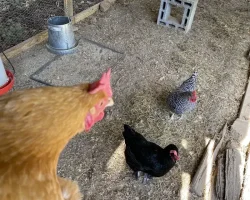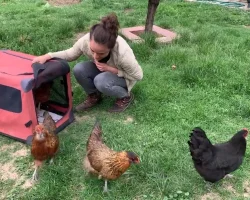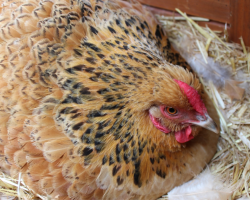Raising chickens for eggs is simple. You just need chickens, space, food, and water, right? But simple doesn’t mean it’s easy. Let me explain:
Buying chickens is simple, but it’s not easy to pick the right breeds.
Building a coop is simple, but it’s not easy to make a safe one.
Not knowing the difference between simple and easy can cause big mistakes. In raising chickens, these mistakes could lead to sick chickens or fewer eggs. Hopefully, these mistakes are simple to avoid and easy to plan for. That is, if you have the right information.
In this article, you’ll learn what not to do. You’ll also get ideas on how to raise chickens that lay plenty of eggs. So, let’s get started!
1. Not Checking Local Rules

Have you ever thought, “Is this even allowed?”
Well, rules matter and can’t be ignored. “Not knowing the law is no excuse,” as they say.
Where to Start?
First, check your local regulations before bringing home your chickens. Some cities, towns, and homeowner associations have strict rules about keeping poultry. Knowing beforehand is better than rehoming your birds due to legal complications.
I’ll be honest, reading legal rules is stressful. You might find lots of tricky requirements but don’t worry. Below is a checklist to help you focus on the main points:
- The highest number of chickens allowed (often max 4-6 in residential areas)
- Coop location and minimum space from property lines
- Limits on roosters because of noise
- Rules on getting permits or licenses
- Waste handling and cleanliness rules
Disclaimer: Don’t depend fully on our checklist, since your local rules might be different. Local offices won’t take it as an official source. Use it for a quick overview, then double-check.
Next to the question “Am I allowed to keep chickens?”, there are 14 important questions to ask yourself before keeping chickens. For example, does anyone in your family have an allergy or phobia?
2. Choosing the Wrong Chicken Breeds
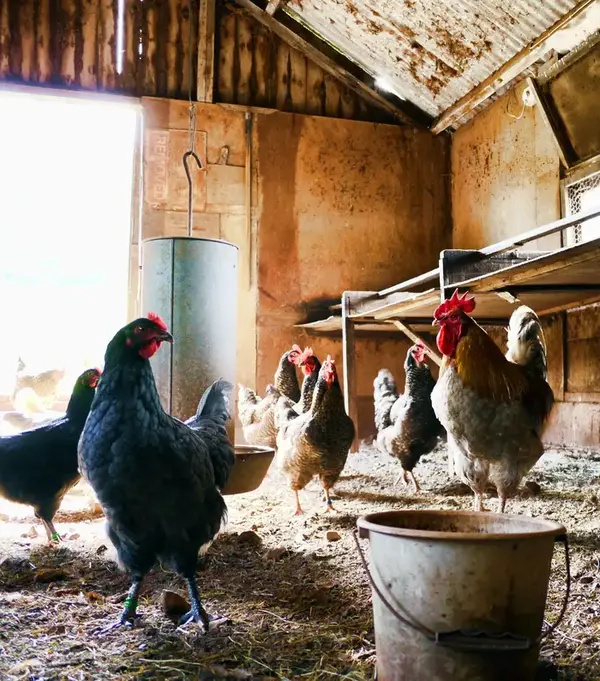
I decided I wanted to start raising chickens for eggs yesterday. Today, it’s time to get the chickens! I walked into the store and picked out the little chicks. I even named them after my favorite breakfasts: Pancake, Waffles, and Burrito.
In six months, both Waffles and Pancake were laying eggs daily, but Burrito couldn’t keep up… Turns out Burrito is a meat chicken breed! And now, I have two hard choices: keep her, or… well, let’s just say Burrito might live up to her name after all.
This story didn’t happen to me, but I hope you get my point. Knowing this ahead of time can save you the disappointment and egg shortages. Doing research before diving head-first into the adventure of chicken keeping is a smart idea.
Choose the right breed for you based on your needs. Some of the best layers, like Leghorns, Australorps, Rhode Island Reds, and ISA Brown, can produce 250 and over 300 eggs annually.
Egg size generally depends on the chicken’s size, but feed type and quantity also play a role.
However, remember this: “No breed can guarantee eggs, it does take some care and effort.”
3. Underestimating Space Needs When Raising Chicken For Eggs

We usually see chicks sit nice and close together, looking so cute! This is fine when starting. But, sadly, this cute scene might turn into a problem as soon as your chicks grow. For big chickens, it will be a smelly, crowded, messy disaster.
Your chickens should have enough space. But what does that mean?
According to famous chicken keeper Chris Lesley, a.k.a. the Chicken Chick:
“When calculating how many chickens can be housed comfortably inside a coop, the rule of thumb is 4 square feet of space per full-sized bird. Outside the coop, the rule of thumb for a fenced outdoor run or yard is 10 square feet per full-sized bird.”
At least this has worked for her in her 20 years of experience. Also, there’s no such thing as too much space. So, invest in your chickens. I promise you, it’s worth it.
If your chickens have slightly less space, there is no need to worry right away. As a minimum, I advise 2-3 square feet (or 0.2-0.3 square meter) of coop space per chicken, and 8-10 square feet (or 0.7-0.9 square meter) in an outdoor run.
4. Skimping on Chicken Coop Quality
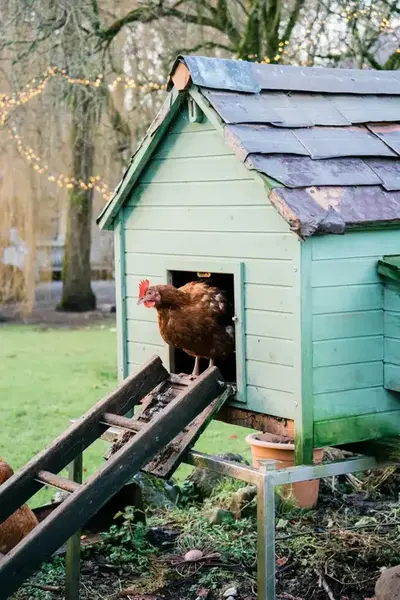
Two groups fall into this mistake: The DIY group and the group that buys a chicken coop.
The DIY group starts with a creative vibe. They join nails and wood hoping to set up a functional coop. Yes, it’s creative and relatively cheap, but it could mean doing something beyond your scope. The problem is sometimes it may backfire if not careful. If you cannot spend time to research, and search for good free DIY coop plans, then it’s best to invest in buying a chicken coop. This often still needs assembling, and some DIY.
The buyers group’s main mistakes are buying a cheap coop of poor quality materials, that might not be suitable for your hens.
Regardless of the group, quality is better than convenience when raising chickens for eggs.
There’s a long list, but we’ll keep it for another article. Let’s just cover the key characteristics of a good coop:
- High quality, durable materials
- Proper Ventilation
- Predator Proof
- Weather Resistant
- Spacious Design
- Good Drainage
Read my Ultimate Chicken Coop Guide for more information.
5. Giving the Wrong Chicken Feed or Supplements
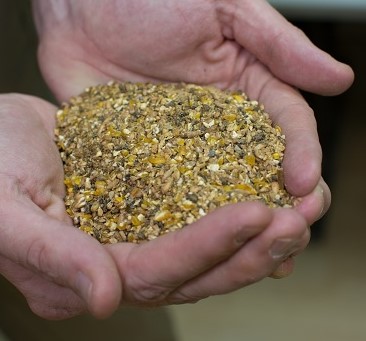
In my opinion as a chicken expert and nutritionist, one of the biggest mistakes beginner chicken keepers make is not providing a well-balanced diet. Chickens need the right nutrients to stay healthy and lay lots of eggs with strong egg shells, but many new owners make the following mistakes:
- Feeding an Inadequate Diet or Overfeeding Treats: Relying too much on scratch grains, kitchen scraps, or other chicken foods without providing enough complete feed with the necessary protein and nutrients. Follow the 90-10 rule: 90% complete feed and maximum 10% other foods.
- Giving the wrong complete feed: Don’t feed baby chicks a layer feed, or vice versa! Layer feed is for laying hens, while chicks and meat chickens need more protein. The right feed depends on your chickens’ purpose and age.
- Feeding Expired or Poor-Quality Feed: Never feed your chickens feed contaminated with mold or pests! Store it properly in a dry and clean place. Don’t purchase too much feed at once, to keep your feed stock fresh.
- Inconsistent Feeding Schedule: Offering food at irregular times or leaving food out all day is a no-go. It can cause your chickens stress, and lower egg production. It can also cause squabbling.
- Overfeeding Protein: Too little protein is not good, but too much isn’t good either. Providing too much protein can lead to health issues, including kidney strain and excess weight gain.
- Not Providing the Right Supplements: Always provide insoluble chicken grit for digestion. Though soluble grit is in layer feed, it’s good to offer extra to laying hens.
Don’t ignore their diet. Do your research!
Start with my post on How to Choose the Best Chicken Feed for Healthy Hens.
Also, make sure your chickens have constant access to clean, fresh water. This is equally, if not more important than feed.
6. Not Collecting Eggs Regularly

One of the most common mistakes beginner chicken keepers make is not collecting eggs frequently enough. It might seem harmless to leave eggs in the nesting boxes for a day or two, but this can lead to big problems.
Leaving the eggs in the nesting box for too long may lead to broody hens. Meaning a hen may stubbornly sit on them, acting broody when you’re not hatching chicks.
Also, eggs can become dirty or even cracked if left in the nesting box for too long. Chickens walk in and out of the boxes with muddy feet, and an egg left too long might get trampled. This not only makes a mess in the coop, but also increases the risk of bacteria contaminating the eggs.
Another risk is that repeated raw egg spills can make chickens start eating their own eggs. Some hens may even develop a habit of egg-eating. Trust me, you don’t want that. Once this behavior is learned, it is very difficult or even impossible to unlearn it.
If collecting eggs feels like a chore, raising chickens will be much harder. Jut make a habit out of it!
To keep eggs fresh and clean, collect them at least once a day, or twice if possible.
7. Failing to Plan for The Seasons
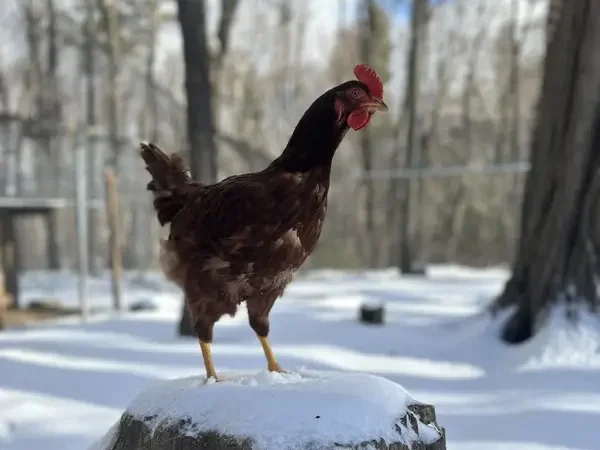
In winter, chickens lay fewer eggs, and their water can freeze completely. In summer, they lay more eggs but risk dehydration. The seasons bring their own challenges.
So, have you planned for them?
Skipping this planning can cause serious problems, like frostbite in winter. You might end up fixing issues you could have prevented.
The key point here is that chickens need different care each season. Plan while you still have time. This article covers seasonal needs and solutions in detail.
8. Lack of Knowledge About Chicken Diseases and Health
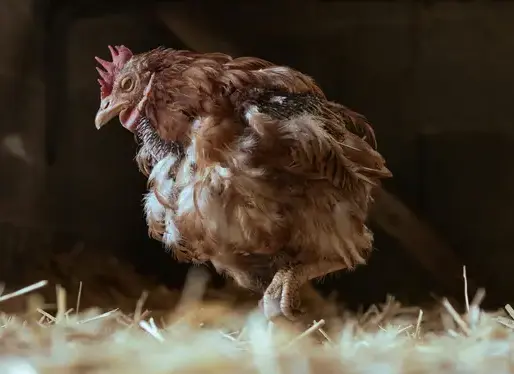
White spots on the skin, growing tremors, and green or yellow diarrhea… Do they sound familiar? They should be because ignoring chicken diseases can cause serious losses. Spotting them early can save your chickens.
There are many chicken diseases to know about, but I can’t list them all here. Instead, I’ll share a detailed guide (with pictures) covering the most important ones.
9. Not preparing for Land Predators

If you’ve raised chickens long enough, you’ve likely lost one to a predator. It’s a harsh reality. Predators must be smart to survive, so any weak spot in your setup makes your flock an easy target.
Land predators like raccoons and weasels cause most attacks. While many people shoot or trap them, I believe there’s a better way. Think about it. These animals are just trying to survive. But that doesn’t mean we should let them take our chickens! Instead, let’s focus on prevention:
- Don’t leave chicken feed outside.
- Keep chickens in a secure run, and inside the coop during the night.
- Strengthen your coop by finding and fixing weak spots.
If attacks continue, then consider killing these predators. But only as a last resort.
10. Not preparing for Sky Predators

Don’t forget threats may also come from the sky!
Laws usually protect sky predators, so you must rely on prevention, which is what I prefer anyway.
Hawks and other sky predators are hard to avoid. However, this article shares a chicken keeper’s experience with hawks and how she handled them.
Learning from these mistakes can help you prevent losses and keep egg production steady all year. By avoiding these common errors, you can enjoy the benefits of raising chickens for eggs.
Final Thoughts
Raising chickens for eggs is rewarding, but mistakes are part of the learning process. By avoiding the common errors we’ve discussed, you’ll raise healthy chickens that lay consistently. A balanced diet and proper care are key to their health and happiness.
If you’ve made some of these mistakes, don’t worry! With time, you’ll become more confident. Keep learning, be patient, and enjoy your chicken-keeping journey.



